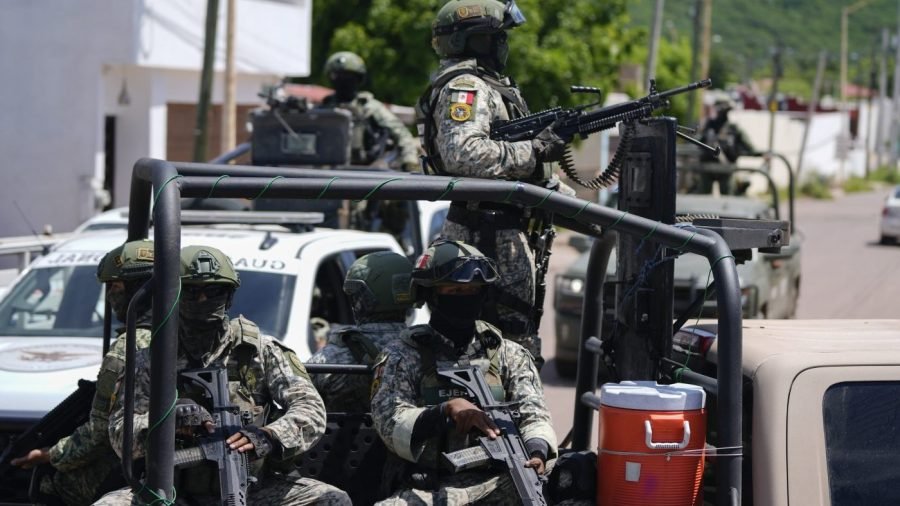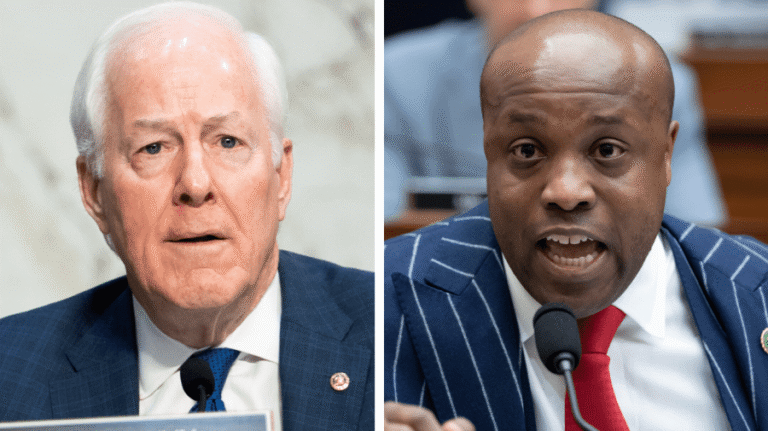
The era of strengthening bilateral national security relations between the U.S. and Mexico that began in the early 1990s ended during the administration of Mexican President Andrés Manuel López Obrador (2018 to 2024). López Obrador dramatically changed the nature of the Mexican government, converting it from a country slowly developing solid democratic institutions back to single-party control. The implications for the U.S.-Mexico relationship are significant.
The growth in the number and strength of transnational criminal organizations operating in Mexico (and the U.S.) is deeply concerning. These criminal groups thrived over the course of López Obrador’s term. His policy of “abrazos no balazos” (hugs not bullets), ostensibly intended to reduce violence in Mexico, failed miserably. Of the five most violent cities in the world, four are in Mexico. Insecurity is rampant, and the majority of Mexicans are very worried.
These facts are deeply troubling for American national security interests. An increasingly insecure and unstable Mexico, under threat by cartels, represents a significant challenge and leads to three key conclusions.
First, it is clear that leaders in both the U.S. and Mexico must recognize that the transnational criminal organizations are criminal insurgents; although they do not seek to overthrow Mexico’s political system, they undermine the legitimacy of the state.
Second, the cartels have penetrated the state political structure at all levels — potentially including the former president himself.
Finally, the fact that the major cartels are motivated by both entrepreneurial and political objectives changes the level of risk for America.
President Trump has indicated his interest in sending the U.S. military into Mexico “help with the cartels.” Vice President JD Vance has spoken about sending in the military “to do battle with the Mexican drug cartels.” Secretary of Defense Pete Hegseth agrees, saying, “If it takes military action, that’s what it may take eventually.”
A recent phone call between Hegseth and the Mexican secretaries of Defense and the Navy did not go well. “We’re taking nothing off the table. Nothing,” he replied when asked about ruling out military strikes in Mexico.
Although there is a high chance that there would be tactical success against elements of the cartels, that success would be limited and fleeting — despite the capabilities that America’s military brings to bear.
The demand by Americans for a range of illicit drugs is strong and constant. Any disruption of the trafficking of drugs (and all forms of illicit goods) from and through Mexico would be temporary. The evidence is that despite increased efforts by Mexico’s armed forces and law enforcement, criminal organizations can replace any lost resources. Notwithstanding efforts by the U.S. and partner nations to eradicate the drugs at their source and to interdict flows, the cartels continue to prosper.
Rather than intervening unilaterally against the cartels in Mexico, the administration should return to the era of greater national security collaboration with its Mexican counterparts. In the years after NAFTA was signed in 1994, cooperation between U.S. and Mexican agencies in intelligence sharing, law enforcement investigations and military-to-military engagement gradually and notably improved. This took place with Democratic and Republican administrations in the U.S. and with governments of both PAN and PRI, the two major Mexican parties. But these levels of cooperation, save for the defense relationship, diminished dramatically under López Obrador.
With a new Mexican administration led by President Claudia Sheinbaum, both nations have a window of opportunity to reverse the policies of the López Obrador era and commit to renewed collaboration.
Secretary of State Marco Rubio has it right. When asked in 2023 if he would support sending in U.S. troops to Mexico, he replied that “it has to be in coordination with the armed forces and the Mexican police force. Otherwise, it would not be possible to do it.” This is true primarily because of the two nations’ long and complex shared history, for which America bears its fair share of the blame in creating deep Mexican distrust.
The recent designation of six Mexican cartels as Foreign Terrorist Organizations could, if managed intelligently, provide more tools to follow the money, which is the lifeblood of these groups. Strengthening the Departments of Justice, Treasury and Homeland Security to investigate, levy sanctions and penalties and prosecute members of the cartels in both countries could significantly disrupt their operations.
This designation, however, does not enable the Department of Defense to intervene unilaterally in Mexico. The entry by U.S. armed forces into Mexico without invitation would be a clear violation of Mexican sovereignty and must be avoided.
An uninvited unilateral military action (including drone strikes) by the U.S. against cartels on Mexican soil would not simply undo that evolving degree of trust between our armed forces. The Mexican military would view such a move as an unforgiveable violation of the country’s sovereignty, turning a partner into an enemy.
Instead of having a respected voice within the Sheinbaum administration making the case for working with its American partners against the criminal groups, the Mexican military would likely cease all conversation, cooperation and coordination. And if we in the U.S. were unhappy with our Mexican counterparts during López Obrador’s term, the dramatic turn from cooperation to outright hostility would be even worse.
Craig A. Deare, Ph.D., is a professor of national security affairs at the College of International Security Affairs at the National Defense University.

